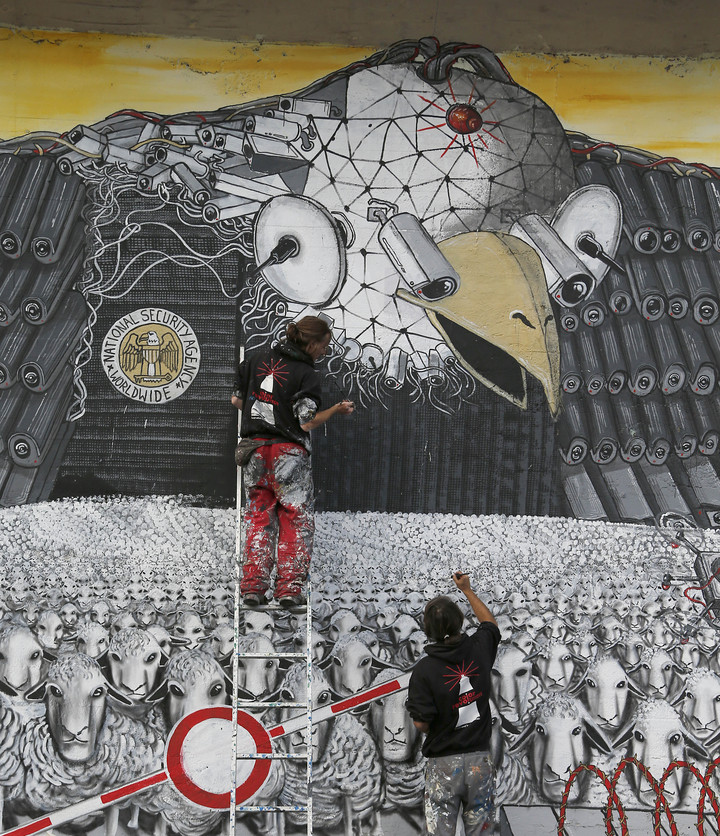WASHINGTON — U.S. officials are alerting some foreign intelligence services that documents detailing their secret cooperation with the United States have been obtained by former National Security Agency contractor Edward Snowden, according to government officials.
Snowden, U.S. officials said, took tens of thousands of documents, some of which contain sensitive material about collection programs against adversaries such as Iran, Russia and China. Some refer to operations that in some cases involve countries not publicly allied with the United States.
The process of informing officials in capital after capital about the risk of disclosure is delicate. In some cases, one part of the cooperating government may know about the collaboration while others – such as the foreign ministry – may not, the officials said. The documents, if disclosed, could compromise operations, officials said.
The notifications come as the Obama administration is scrambling to placate allies after allegations that the NSA has spied on foreign leaders, including German Chancellor Angela Merkel. The reports have forced the administration to downplay operations targeting friends while also attempting to preserve other programs that depend on provisional partners. In either case, trust in the United States may be compromised.
“It is certainly a concern, just as much as the U.S. collection [against European allies] being put in the news, if not more, because not only does it mean we have the potential of losing collection, but also of harming relationships,” a congressional aide said.
DOCUMENTS DEAL WITH MILITARY CAPABILITY
In one case, for instance, the files contain information about a program run from a NATO country against Russia that provides valuable intelligence for the U.S. Air Force and Navy, said one U.S. official, who requested anonymity to discuss an ongoing criminal investigation.
“If the Russians knew about it, it wouldn’t be hard for them to take appropriate measures to put a stop to it,” the official said.
Snowden lifted the documents from a top secret network run by the Defense Intelligence Agency and used by intelligence arms of the Army, Air Force, Navy and Marines, according to sources, who spoke on the condition of anonymity to discuss sensitive matters.
Snowden took 30,000 documents that involve the intelligence work of one of the services, the official said. He gained access to the documents through the Joint Worldwide Intelligence Communications System, or JWICS, for top secret/sensitive compartmented information, the sources said.
The material in question does not deal with NSA surveillance but primarily with standard intelligence about other countries’ military capabilities, including weapons systems – missiles, ships and jets, the officials say.
Although Snowden obtained a large volume of documents, he is not believed to have shared all of them with journalists, sources say. Moreover, he has stressed to those he has given documents that he does not want harm to result.
“He’s made it quite clear that he was not going to compromise legitimate national intelligence and national security operations,” said Thomas Drake, a former NSA executive who visited Snowden in Moscow this month. Snowden separately told Drake and a New York Times reporter that he did not take any documents with him to Russia.
“There’s a zero percent chance the Russians or Chinese have received any documents,” Snowden told the Times in an online interview last week.
‘HARMING PEOPLE ISN’T MY GOAL’
Indeed, Drake said, Snowden made clear in their conversation that he had learned the lessons of prior disclosures, including those by an Army private who passed hundreds of thousands of diplomatic cables to the anti-secrecy organization WikiLeaks, which posted them in bulk online. “It’s telling,” Drake said, “that he did not give anything to WikiLeaks.”
Nonetheless, the military intelligence agencies remain fearful, officials said. The NSA in recent months has provided them with an accounting of the documents it believes Snowden obtained.
Snowden has instructed the reporters with whom he has shared records to use their judgment to avoid publishing anything that would cause harm. “I carefully evaluated every single document I disclosed to ensure that each was legitimately in the public interest,” he told the Guardian newspaper. “There are all sorts of documents that would have made a big impact that I didn’t turn over, because harming people isn’t my goal. Transparency is.”
It is those documents that may not be subject to journalistic vetting or may be breached by hackers that worry some intelligence officials. Snowden is known to have given documents in any quantity to only three journalists: The Washington Post’s Barton Gellman, independent filmmaker Laura Poitras and former Guardian columnist Glenn Greenwald.
So far, Drake said, no such documents have been released. Snowden’s disclosures about the NSA have prompted a global debate about the proper scope and purpose of U.S. espionage — against its own and other countries’ citizens.
“I consider that a good thing,” Drake said.
Send questions/comments to the editors.



Success. Please wait for the page to reload. If the page does not reload within 5 seconds, please refresh the page.
Enter your email and password to access comments.
Hi, to comment on stories you must . This profile is in addition to your subscription and website login.
Already have a commenting profile? .
Invalid username/password.
Please check your email to confirm and complete your registration.
Only subscribers are eligible to post comments. Please subscribe or login first for digital access. Here’s why.
Use the form below to reset your password. When you've submitted your account email, we will send an email with a reset code.